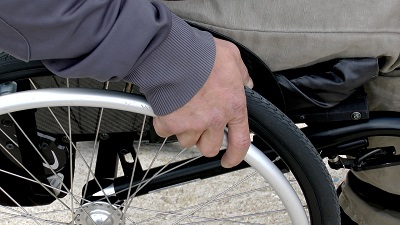The fourth principle covers all pharmacy services including medicines management, clinical services, advice and referral. Medicines management includes all aspects of obtaining, keeping, handling, using and supplying medicines and medicinal devices.
Pharmacy services should be accessible to patients and the public and managed and delivered effectively and safely.
This principle highlights the need to make pharmacy services accessible. This can be done in several ways through effective promotion of pharmacy services, ensuring accessibility to all patients including the young, old, disabled and those patients who may find accessing services difficult, for example those whose first language is not English or those who are illicit drug users.
All staff should be aware of what services the pharmacy offers, and in order to promote the services and engage patients you should also know the following:
- The beneï¬ts of the service.
- Who is eligible for the service, for example emergency contraception (EHC) is available free of charge between certain ages in different localities.
- How the service can be accessed, is an appointment required?
Recommendations – look at how you advertise the services in your pharmacy is it clear, concise, up to date. Are you promoting the services effectively?
Consider what other services would be suitable for the demographics of your patients. For example if the pharmacy has a high proportion of patients from the Indian subcontinent, you could investigate the possibility of offering a cholesterol screening service as this patient group have an increased risk of high blood cholesterol, or vaccinations appropriate to religious pilgrimage.
There should not be any barriers to pharmacy. It should be available to all members of the population. Examples of ways of making your pharmacy more accessible to customers include:
 Automatic door entry
Automatic door entry- Wheelchair ramps
- Even flooring
- Good lighting
- Hearing aid loop
- Staff speaking different languages
- Clutter free aisles and window displays
The pharmacy and the services offered should be tailored to the local population. The inspector may ask how this is achieved and also about the training you have completed specific to the services provided by your pharmacy.
Pharmacy is not just about managing health conditions it is also about promoting a healthy lifestyle to the local population. Consider what information you can provide to patients about lifestyle choices. Do you offer any services such as smoking cessation. blood pressure testing, diabetes screening, cholesterol screening, weight management or sexual health services? The inspector may ask how you impart this advice and what the pharmacy has done to improve the health of its patients. Think about how you would demonstrate what you have done.
Principle four also includes disposal of returned medicines and medical devices. This means you should be aware of the procedures for the disposal of returned patient medication including controlled drugs. Familiarise yourself with the relevant SOP as you could be asked to talk through or demonstrate the process.
Needle exchange procedures will also fall under this principle. Each local area will have its own specification on how a needle exchange service should be managed, therefore look at the process or if you are not aware of the process, ask the pharmacist to explain.
In pharmacy it is important to do regular date checks and rotate stock to ensure that out of date medicines are not sold or dispensed to patients. Each pharmacy should have a date check SOP for the counter and dispensary which outlines when stock should be checked as well as providing a recording mechanism. Ensure you are familiar with the procedures in your pharmacy and how out of date stock is disposed of.
Obtaining medicines and medical devices from a reputable source, managing risks associated with providing pharmacy services and ensuring there are enough staff who are suitably qualified and skilled to provide a safe and effective were the standards most commonly judged as “not met” in the review of inspections reported at the June 2018 GPhC council meeting.
